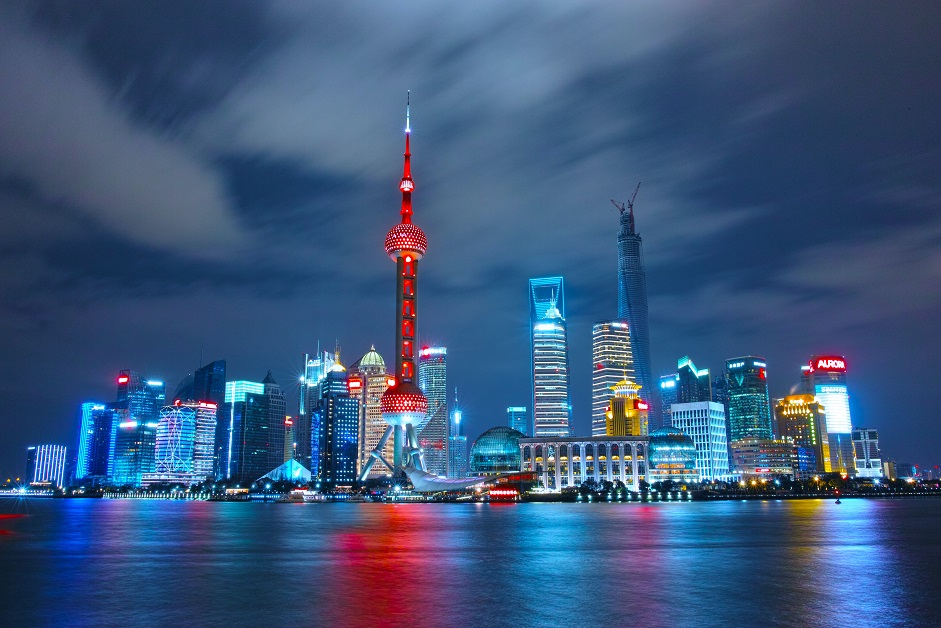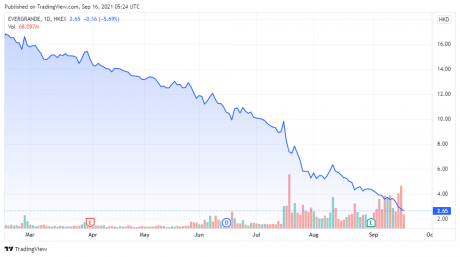
The biggest property developer in China, Evergrande, seems to be on the verge of collapse. They obviously owe $300B. Is insolvency on the table? There’s a much better concern, however. Is Evergrande the only company in the sector with these kinds of debts? Or is Evergrande just a symptom of a widespread disease? Also, how does this associate with Bitcoin? Do we provide a legitimate case in the following short article? Is this “China’s Lehman moment,” as the pseudonymous Bitcoin expert recommends?
What we know for sure is that “China’s major banks have been notified by the housing authority that Evergrande Group won’t be able to pay loan interest due Sept. 20,“ according to Reuters. Plan B’s comment sets the tone, and the video shows the intensity of the situation:
Check the other day’s date. Well, on September 15th, 2008, Lehman Brothers applied for insolvency. Let’s quote Investopedia for a fast recapitulation.
“At the time of its collapse, Lehman was the fourth-largest investment bank in the United States with 25,000 employees worldwide. It had $639 billion in assets and $613 billion in liabilities. The bank became a symbol of the excesses of the 2007-08 Financial Crisis, engulfed by the subprime meltdown that swept through financial markets and cost an estimated $10 trillion in lost economic output.”
Is China living through a similar situation right this minute?
How Did China Evergrande Get Here?
A couple of days earlier, on September 13th, the South China Morning Post appeared very carefully positive about the circumstance. They discussed the root of the concern:
Reports about missed payments to contractors, attempts to reschedule payments on wealth management products, and failure to sell assets have prompted Chinese regulators and the central bank to intervene to prevent a shock to the financial system.”
At the time, the big news was that they hired “Houlihan Lokey and Hong Kong-based investment bank Admiralty Harbour Capital to assess its capital structure, evaluate the liquidity and explore ways to ease its current liquidity crunch.” And you know what that meant:
Hiring such financial advisers means Evergrande has come to a serious stage of listing what it owns, what it owes and what are the best plans” to extricate itself, said Lung Siu-fung, an analyst with CCB International.
The writing was on the wall.

Where Are We Now? Is China Really In Trouble?
Apparently, China Evergrande was captured in a loop. The company was pre-selling apartments and using that money to fund other projects, in which they also pre-sold the apartments and the cycle started again. Evergrande bonds are suspended, and there’s an opportunity they won’t be active ever once again. They might be worthless. The stock is near its all-time low, it has lost nearly 80% of its value this year.
Completing the story, CNBC notifies:
“The business alerted financiers two times in as numerous weeks that it might default. On Tuesday, Evergrande said it’s at risk of a cross default, which means such risks could spill into other related sectors.
Evergrande stated Tuesday its residential or commercial property sales would continue to weaken considerably this month, adding to its severe cash flow problems.”
Is there a possibility that Evergrande’s issues are the sign of a prevalent illness? That’s the $1M concern. Is China’s real state sector really in trouble? For that answer, we have to go to ZeroHedge’s report:
“Country Garden, the nation’s largest developer by sales, plunged 16% in the past two days, while Gemdale slumped 12% as a gauge of property shares in Shanghai tumbled almost 5% in the period, with valuations firmly below book value. Following the news, Guangzhou R&F Properties drops 10.8% to the lowest since Dec. 2008 while Greentown China -9.1%. At this point, one can safely call it a crisis.”
How Does Evergrande Relate To Bitcoin?
China’s Bitcoin policy doesn’t make good sense. Regulating themselves out of the leadership position in the most important industry of our times is beyond comprehension. There needs to be something else going on. We at NewsBTC have been on the case. We checked out the Digital Yuan CBDC angle. We looked at ads selling small hydropower stations. We found China’s supremacy over the Bitcoin hashrate was subsiding prior to the restriction. And we comprehensive the so-called brand-new “China Model.”
Under Plan B’s original tweet, two comments attract attention. Investor and podcaster Preston Pysh feels that the circumstance is “The guaranteed outcome of fractional reserve banking: Impairment of promises. It’s just a matter of when and at what magnitude.” And the person behind Documenting Bitcoin goes conspiratorial and says, “They knew this was coming. Perhaps this is why they “banned” bitcoin.” That, as you might imagine, opens a huge can of worms.
Full of self-confidence, Plan B reacts, “Yes, and they closed the exits, typical they always do that.” Bad for the people in China but, in general, bullish for Bitcoin. To wrap-up: the federal government saw this originating from a range. They knew the crisis was going to repeatedly hit the country and banned Bitcoin mining to scare the population into not buying the hardest asset ever created. Bitcoin, the real hedge against the collapse of every economy. In any case, the Chinese government will probably try to print its way out of this one. And in some way it’s going to utilize this crisis to reveal their Digital Yuan CBDC.
Does the theory sound coherent to you? Or is there even more to this story?


















